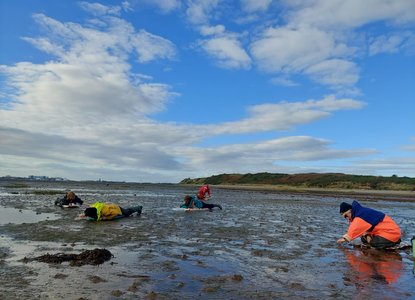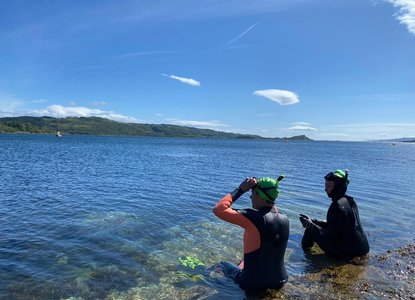Fishtek Marine is a Devon based company dedicated to developing technology to reduce the impact of fishing on the marine environment. Across all their work, Fishtek Marine are committed to paving the way for building public and private partnerships to help solve marine environmental challenges. Their model puts fishers at the centre of all product development ensuring technology is fit for purpose and appropriate for the fisheries it seeks to improve.
Fishtek Marine have a proven track-record for instigating change in fisheries through innovation. Nominated for the Earthshot Prize (2024) for their work to mitigate shark bycatch they were also runners-up of the European Investor Award (2021) for the hookpod, a device that has dramatically reduced the numbers of albatross caught on hooks in southern ocean fisheries.
Bycatch, when fish or other marine life is caught unintentionally by fishing activity, is one of the greatest threats to marine biodiversity. Their innovative SharkGuard - a small device attached to hooks that produces an electric field keeping sharks away from fishing gear -has shown to reduce bycatch of sharks by 91% in longline fisheries.
In the UK, their Disco Scallops project is testing the feasibility of using crab and lobster pots (a form of static gear fishing considered to have a low impact on the environment) fitted with simple LED lights to catch scallops. Currently, of the 100 million scallops landed in the UK every year, 95% are caught by dredging. Scallop dredging is considered to be one of the most destructive forms of fishing in the world. Comprised of heavy chains and metal teeth that dig into the seabed to catch scallops, dredges causes significant damage to marine ecosystems. The project is currently delivering a pilot to prove the commercial viability of the fishery, working with fishers across the UK from Yorkshire, to Devon, Wales and Orkney. If proven it could provide an alternative for fishers to catch scallops in a way that doesn’t harm the environment.
Connection to Esmée’s strategy
- Priorities:
- Long-term outcomes:
- Fisheries in the UK are well and equitably managed, using low impact methods
From Morven Robertson, Funding Manager, Esmée Fairbairn Foundation:
Exploring pathways away from destructive fishing practices is central to our ‘fishing in tandem with nature’ priority. By supporting innovative pilots like Disco Scallops, we aim to spark a broader shift in policy toward truly regenerative forms of fishing.
From Tom Hooper, Projects Manager at Fishtek Marine:
Changing the nature of fishing is hard, but the potential gains from even a small shift in how scallops are caught is significant. The process of developing the technology and building a new, viable low-impact fishery has been a true collaboration that been supported and steered by fishermen, academic organisations and funders such as the Esmée Fairbairn Foundation with a strong commitment to helping us achieve our goals.


